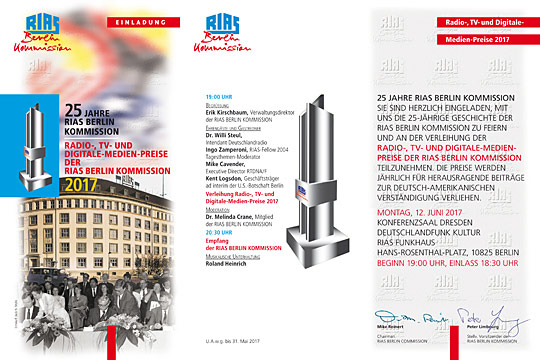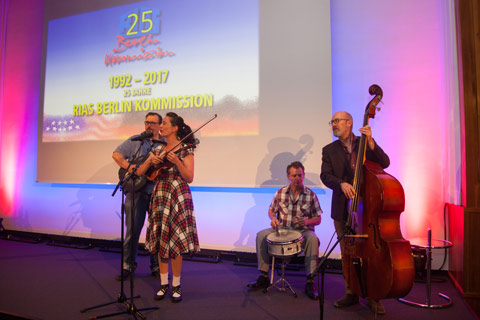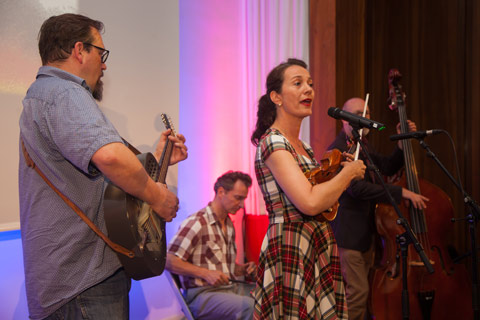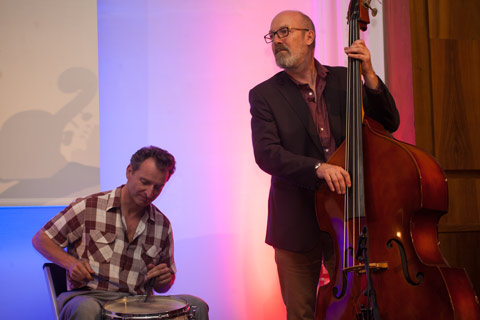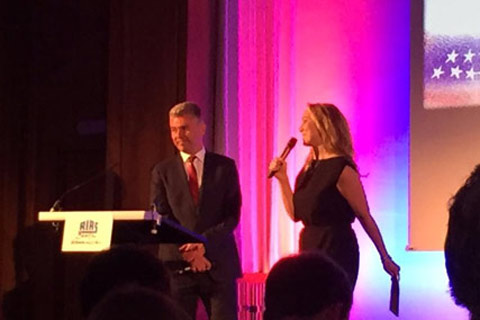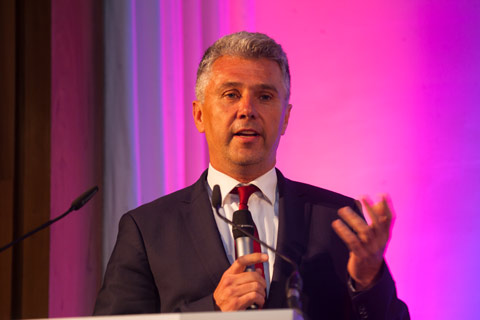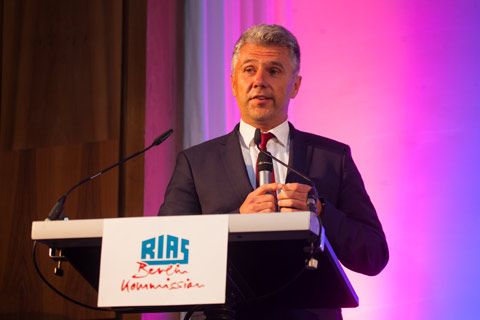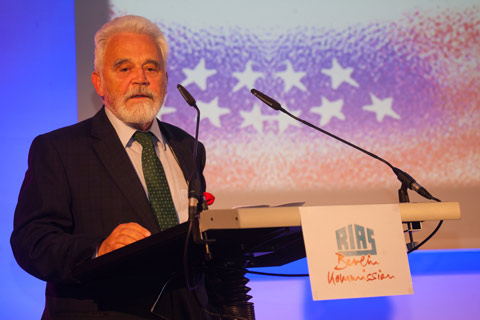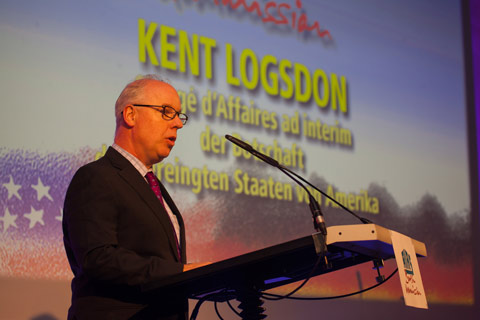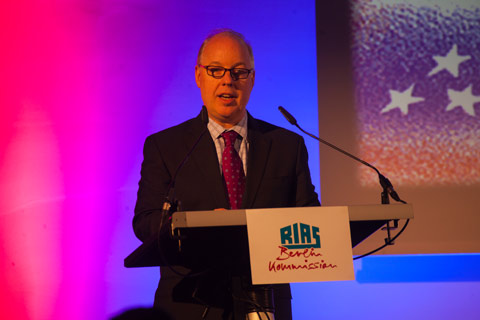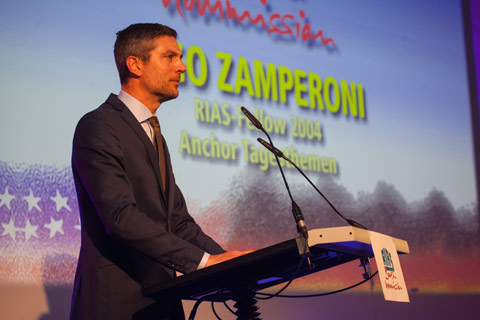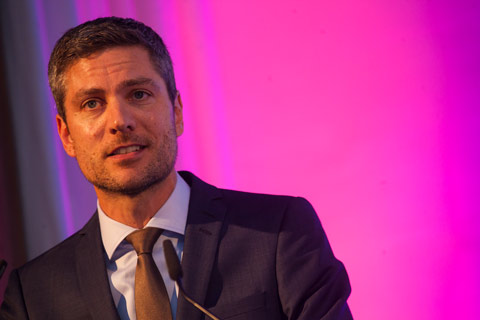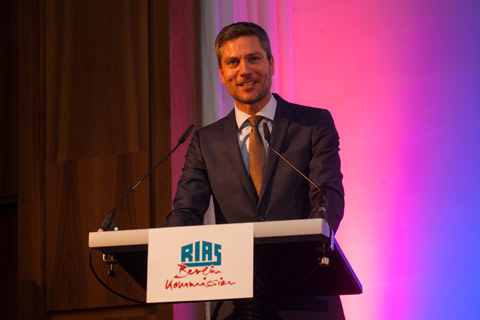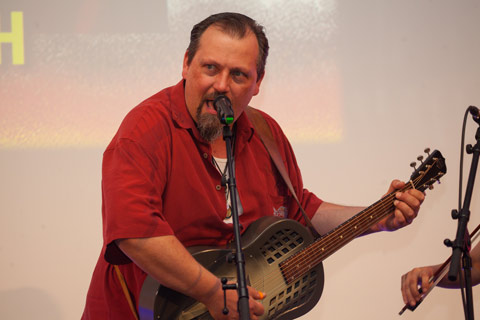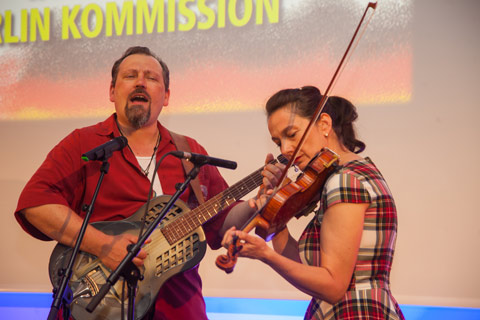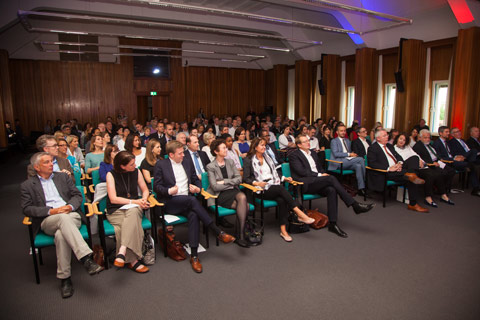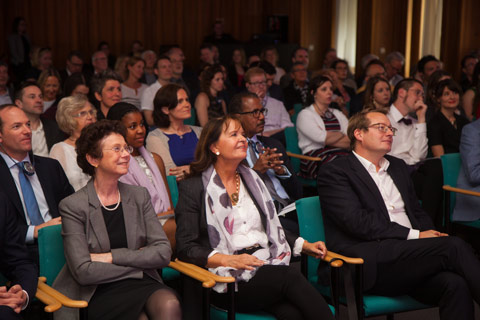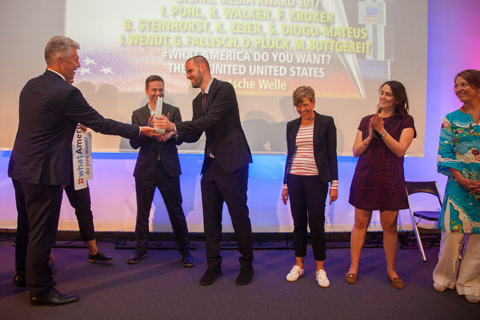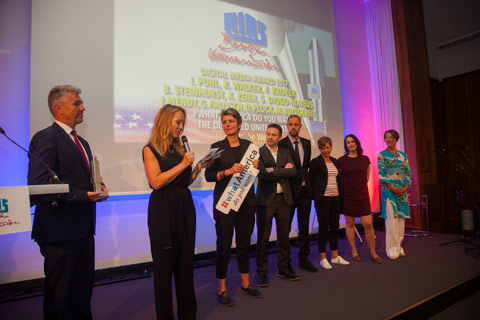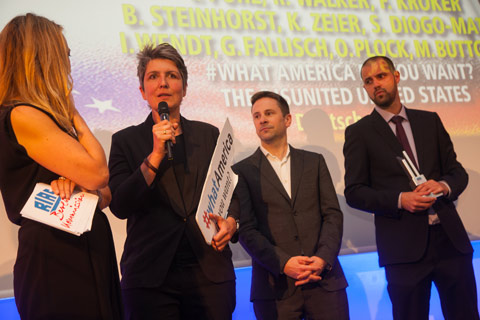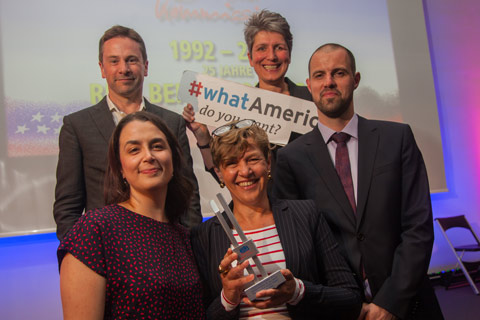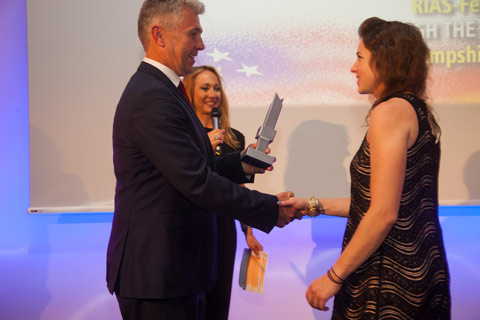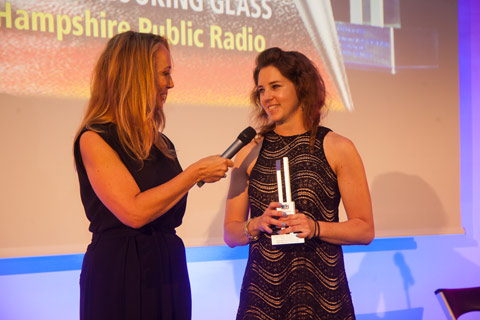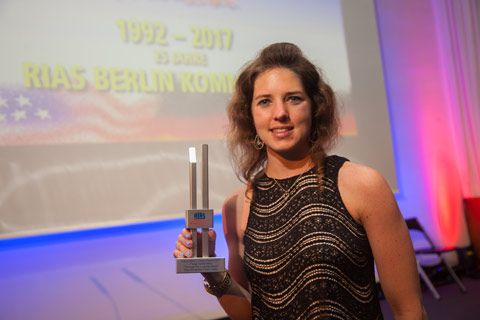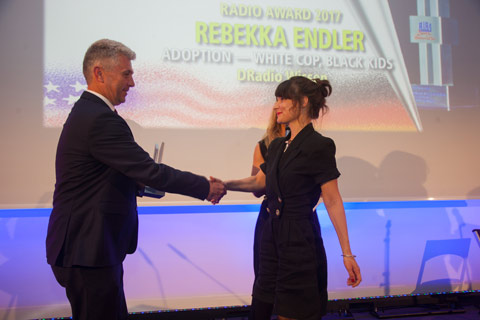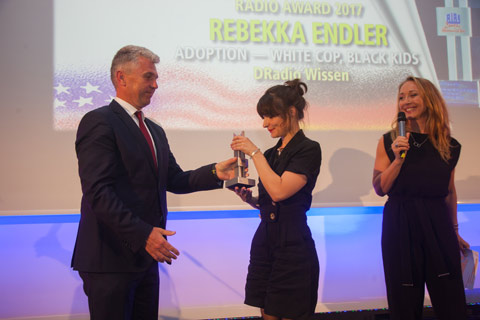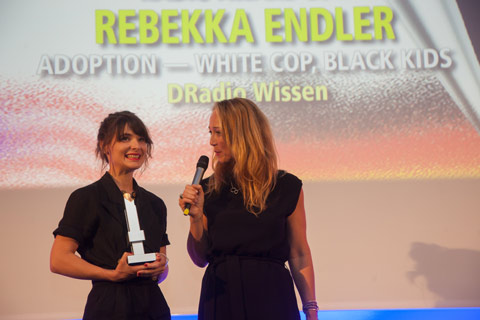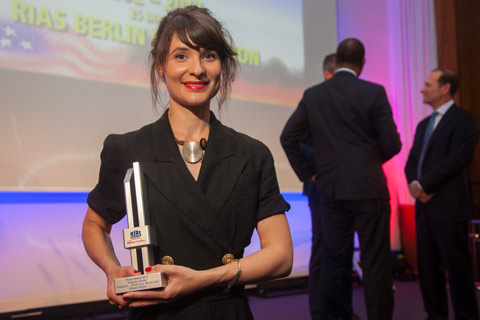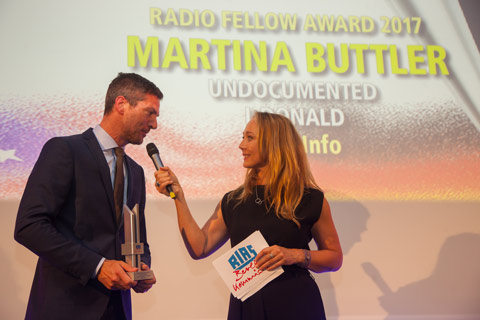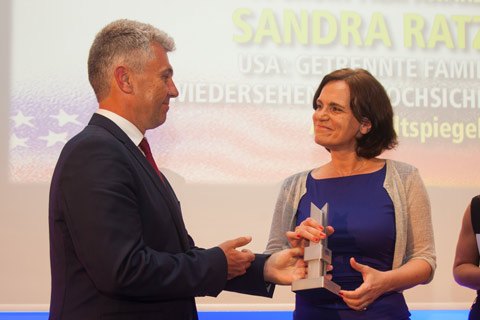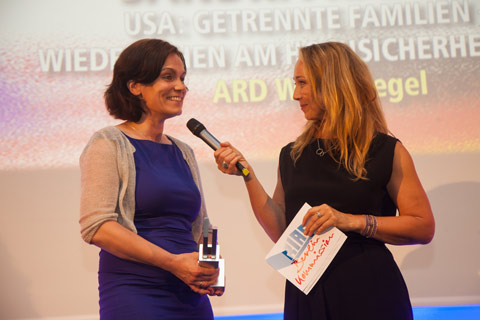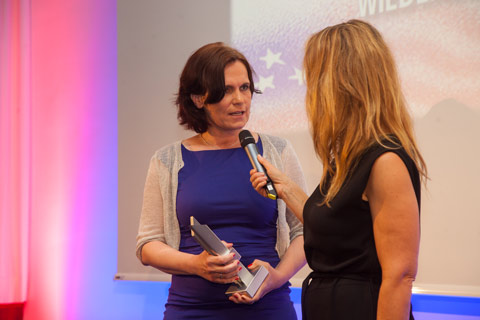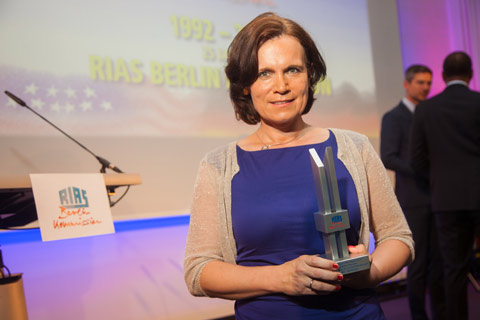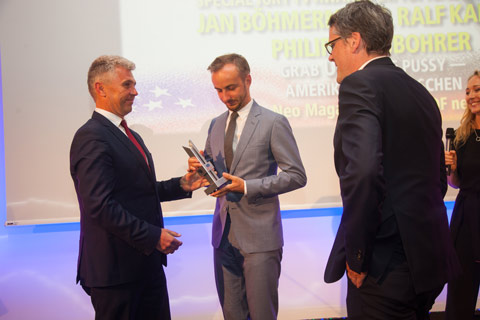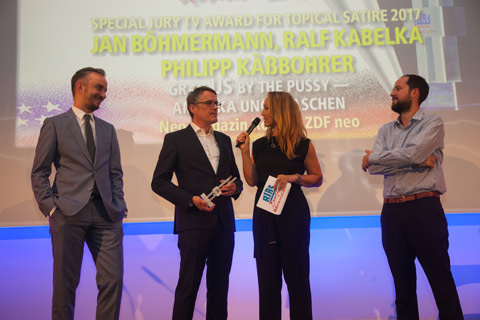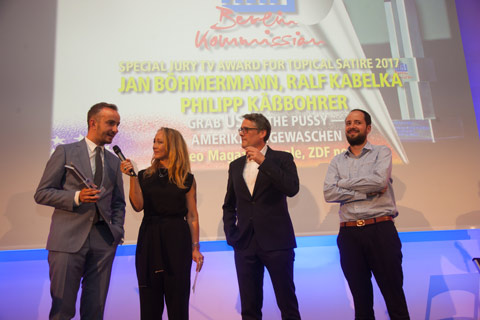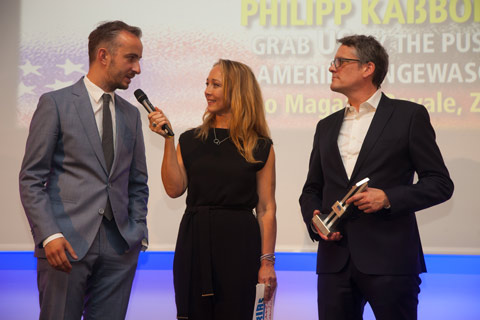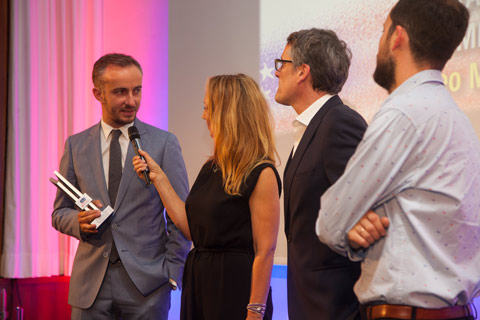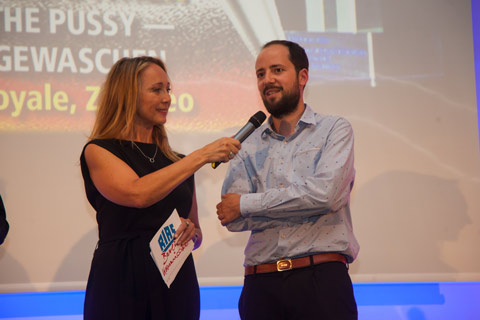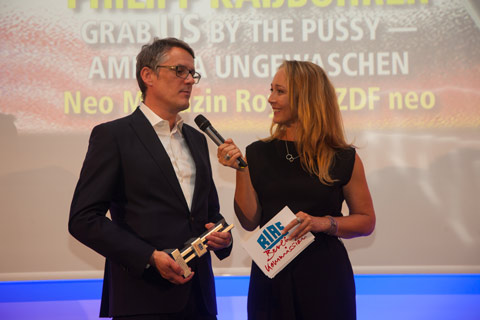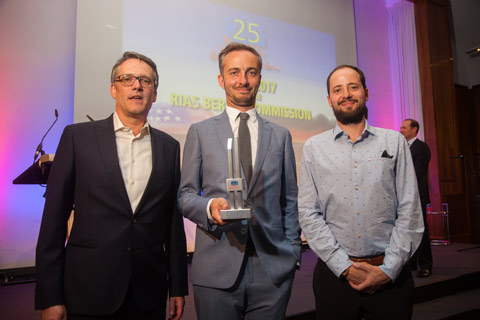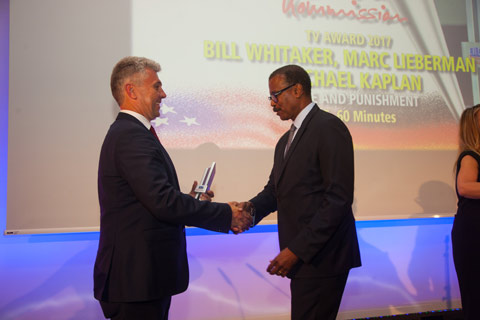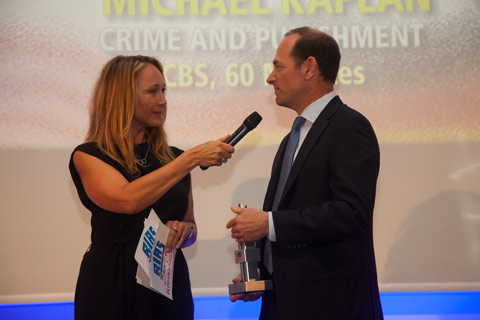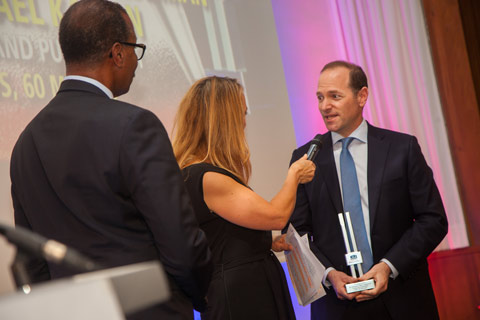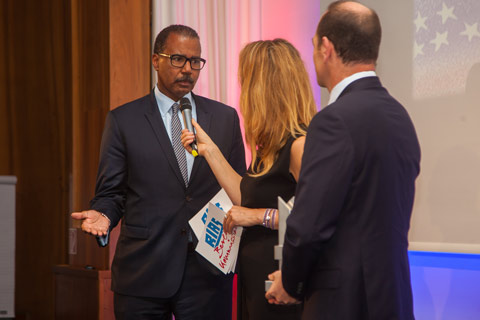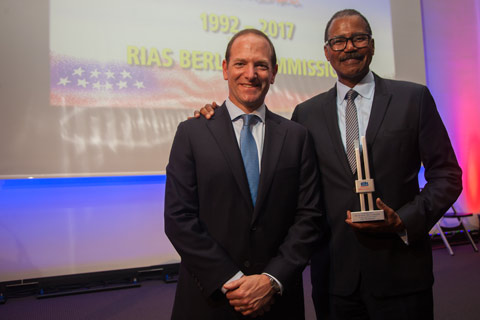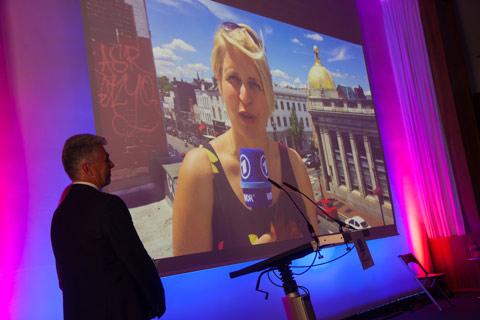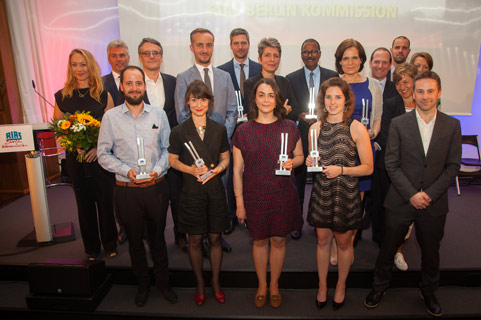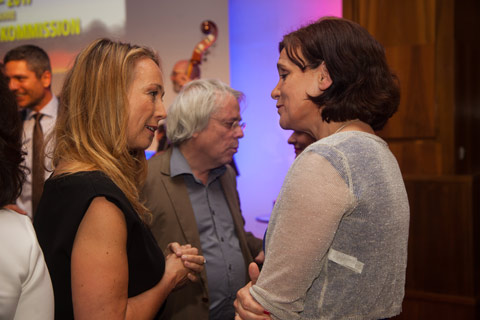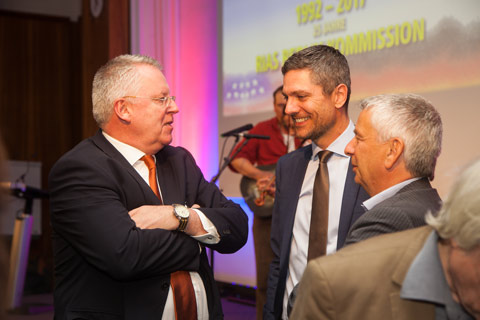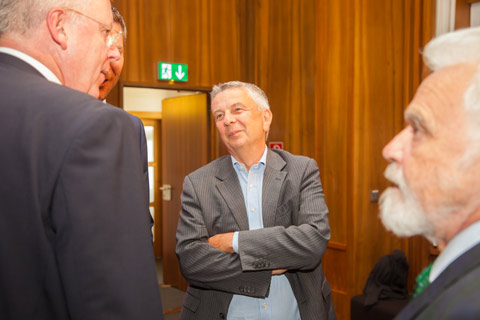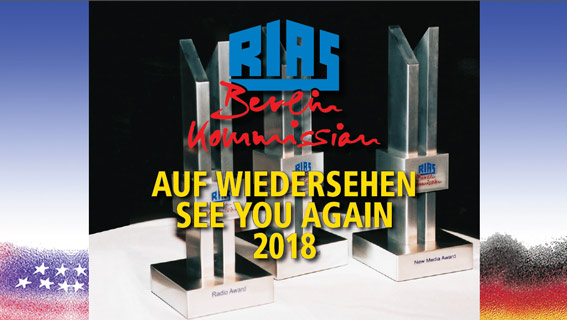RIAS RADIO, FERNSEH- UND DIGITALE-MEDIEN-PREISE 2017
12. Juni 2017
THE AWARD WINNERS
![]()
RIAS-Fellow-Award (Radio)
Martina Buttler
Undocumented — ein Leben in Angst (NDR Info, May 30, 2016)
I-Donald — das Ich, das Welt regieren will (NDR Info, July 13, 2016)
Martina Buttler’s splendid winning reports cover two intertwined aspects from the contentious 2016 election. In “Undocumented — ein Leben in Angst”, she contrasts the conservative argument for tougher action on undocumented immigrants with a heartfelt look at the lives of people who have been living and working in the U.S. for decades in an uneasy existence under the constant threat of deportation. And in “I-Donald — das Ich, das die Welt regieren will”, Buttler explores how Donald Trump was able win the support of traditional Republicans at first skeptical about this political upstart, and at the same time connect with dissatisfied Democrats who felt let down by Washington. Her engaging report includes flashes of humor.
![]()
Radio Award
Rebekka Endler (correspondent)
Adoption — White Cop, Black Kids (DRadio Wissen, October 14, 2016)
“White Cop, Black Kids” takes a gripping look at racism in a small Bible Belt town in Arkansas through the eyes of a white couple with two children who adopt two black children. The family of six face many of the same tensions that reflect the larger issues of the day and are set against the backdrop of turbulence in the summer of 2016 following shootings of several black men by white police officers. Reporter Rebekka Endler has known the protagonists since the 1990s and weaves a wonderful story out of that long-term relationship.
![]()
TV Award (Short Film)
Sandra Ratzow (correspondent)
Getrennte Familien — Wiedersehen am Hochsicherheitszaun (ARD Weltspiegel, June 5, 2016)
With her stirring short report on how separated Mexican families meet on opposite sides of a high-security fence on the U.S.-Mexico border in California, Sandra Ratzow captures the heart-breaking dilemma that Mexicans with U.S. visas or passports face after their parents without such documents are deported. In a year when there was much talk about a wall, the story provides a look at the realities that the barriers created. It follows a young Mexican-American woman going to the fence to see her deported father for the first time in seven years.
![]()
Special Jury TV Award for Topical Satire
Jan Böhmermann, Ralf Kabelka (correspondents), Philipp Käßbohrer (author), Gilda Sahebi, Julia Thiel (producer)
Grab US by the pussy – Amerika ungewaschen (Neo Magazin Royale, ZDF – November 3, 2016)
Jan Böhmermann and Ralf Kabelka’s satirical look at the U.S. election goes beyond the clichés about the United States for a deep look at the mood, especially in the heartland. It gives German viewers candid and prescient insights into Donald Trump’s popularity. It also provided the jury with insightful comic relief through entertaining interviews with Americans as well as German celebrities living in the United States. As the jury noted, the makers of this film clearly understood something about the pro-Trump mood that many other media outlets missed.
![]()
TV Award
Bill Whitaker (correspondent), Marc Lieberman (producer)
Crime and Punishment (CBS “60 Minutes” – April 3, 2016)
The 60 Minutes story on the differences between prisons in Germany and the United States sheds a fascinating light on an important distinction between the respective views on punishment in both countries. The illuminating story on the emphasis that Germany places on rehabilitating even its dangerous convicted criminals with respect and dignity in low-security facilities gives U.S. audiences a chance to learn about, and possibly learn from, one aspect of how Germans have been able to address one of society’s most pressing problems.
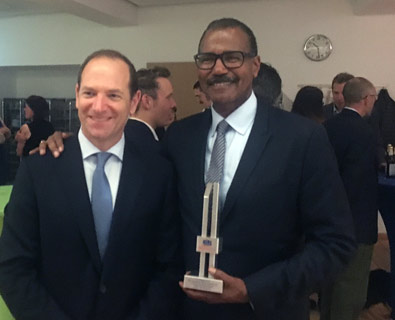 CBS correspondent producer Marc E. Lieberman (r.) was in Berlin along with correspondent Bill Whitaker (l.) to receive the RIAS BERLIN COMMISSION Media Prize. In an interview with the RIAS BERLIN COMMISSION website, Lieberman explained how the idea for the film came about and what impact the “60 Minutes” film on the German prison system might be having on the political debate in the United States:
CBS correspondent producer Marc E. Lieberman (r.) was in Berlin along with correspondent Bill Whitaker (l.) to receive the RIAS BERLIN COMMISSION Media Prize. In an interview with the RIAS BERLIN COMMISSION website, Lieberman explained how the idea for the film came about and what impact the “60 Minutes” film on the German prison system might be having on the political debate in the United States:
Question: How did you stumble across this fascinating story comparing prison life in Germany with the United States?
Marc E. Liebermann: The story was brought to our attention by the Vera Institute of Justice, a nonprofit organization in New York focused on improving aspects of the American criminal justice system. In recent years, Vera has been working with politicians and corrections officials to address the problems associated with mass incarceration in the United States. In 2013, the organization took a delegation of reform minded officials from Colorado, Georgia, and Pennsylvania to Germany and Norway to expose them to alternative ideas about incarceration. Two years later, Vera organized a second trip to Germany and suggested we take a look at the German system.
Q: You seem quite surprised and impressed in the film with the emphasis that the German prison system puts on rehabilitation. What do you think was the most important thing that U.S. audiences got out of your film?
Lieberman: The emphasis on rehabilitation and the conditions of confinement did surprise us. You would never see a convicted murderer in the U.S. have a key to his own cell, much less leave prison for work every day. As a comparison point, we filmed in a Pennsylvania prison and saw murderers locked up alone in their cells 23 hours a day. It’s hard to pinpoint a single audience take away but we hope our story helped inform the debate about crime and punishment in the U.S. The piece aired at a moment when politicians on the right and left were joining together to re-examine tough-on-crime policies like mandatory minimum sentences, the treatment of young offenders as adults, and the use of solitary confinement.
Q: What was the most important takeaway for you after studying the German system and talking to inmates, including murderers, and German prison officials?
Lieberman: It was eye opening to see the magnitude of the differences between prison life in Germany and the United States. From the German system, we learned that incarceration focused on counseling, rehabilitation, and relaxed confinement can produce positive outcomes — in Germany. Whether the German approach could ever be adopted or accepted in the United States is a question for debate.
Q: Do you think the German type of system would work in the United States? Would such an emphasis on rehabilitation be successful in the United States?
Lieberman: Several American officials thought certain elements of the German system could work in the U.S. Officials from Pennsylvania and Connecticut now are experimenting with ideas they brought home from Germany. In Pennsylvania, the secretary of corrections is implementing more intensive staff training, greater freedoms for inmates with good behavior, and programs to help them re-enter society. Earlier this year, Connecticut opened a prison unit for 18 to 25 year-old inmates modeled after German youth prisons. The new Connecticut unit places a heavy emphasis on rehabilitation.
Q: Do you think it’s possible for people in the United States to learn from other countries? Are Americans open to and receptive for good ideas and better practices done in foreign countries, like Germany?
Lieberman: The American officials we spoke with on the tour were very receptive to learning about German ideas and practices. As Connecticut Governor Dannel Malloy told us in the yard at Tegel prison: “They have a lower crime rate than we do. They have a lower recidivism rate than we do, and they’re spending a lot less money on jails … I think there are many things that are transferrable. That doesn’t mean that it’s a perfect fit. But I think we have to challenge ourselves to do better.”
Q: Has your film had any impact on the discussion about prison reform in the United States? If not yet, do you think it will?
Lieberman: We think the story did contribute to the discussion about prison reform in the United States. The Vera Institute of Justice has been using it as a conversation starter for its Reimagining Prison initiative, a program that encourages justice system stakeholders, prison officials, and policymakers to consider new approaches to incarceration. We heard from prisoners in Alabama that they plan to use the story to try to improve relations between inmates and guards. We also heard from several criminal justice professors who tell us they are using the story in their classrooms.
Q: What does the RIAS media award mean for you?
Lieberman: We are honored to be recognized by RIAS for this award. We thank the jury for awarding our story this prestigious this prize.
![]()
RIAS-Fellow-Award (Digital Media)
Paige Sutherland
Through the Looking Glass — How Germany took a leap into the unknown to tackle its heroin problem (NHPR New Hampshire Public Radio)
Paige Sutherland drew from her three-week RIAS Fellowship in Germany to take a deep dive into how policy makers and social workers in Berlin have tackled a problem that also plagues her home state of New Hampshire: drug addiction. Using sound, images, maps and graphics, in Through the Looking Glass, she presented listeners and readers back home with useful ideas on possible solutions. She then followed up with policy makers in Concord to explore whether the answers she found in Germany could be applied in New Hampshire. Her creative and extensive exploration of how solutions to a shared problem can be found across the Atlantic epitomizes the RIAS mission to promote better understanding through transatlantic cooperation and exchange of ideas.
![]()
Digital Media Award
Ines Pohl, Richard Walker, Miodrag Soric, Beate Steinhorst, Kristin Zeier, Sofia Diogo Mateus, Florian Kroker, Ilona Wendt, Gero Fallisch, Olof Pock, Manuela Buttgereit
#whatAmerica do you want? The Disunited United States (Deutsche Welle)
“#WhatAmerica do you want?” seems like a simple question, but it was central to the hearts and minds of many Americans during the U.S. election in 2016. Deutsche Welle correspondents did exhaustive reporting with dozens of interesting interviews, including one with presidential candidate Bernie Sanders. Throughout the long-term project, the Deutsche Welle reporting probed the hearts and souls of many Americans just before the election. The multilingual and multimedia project consists of videos sent out to the online world and an interactive map of the United States, which adds a further dimension to the outstanding project.

